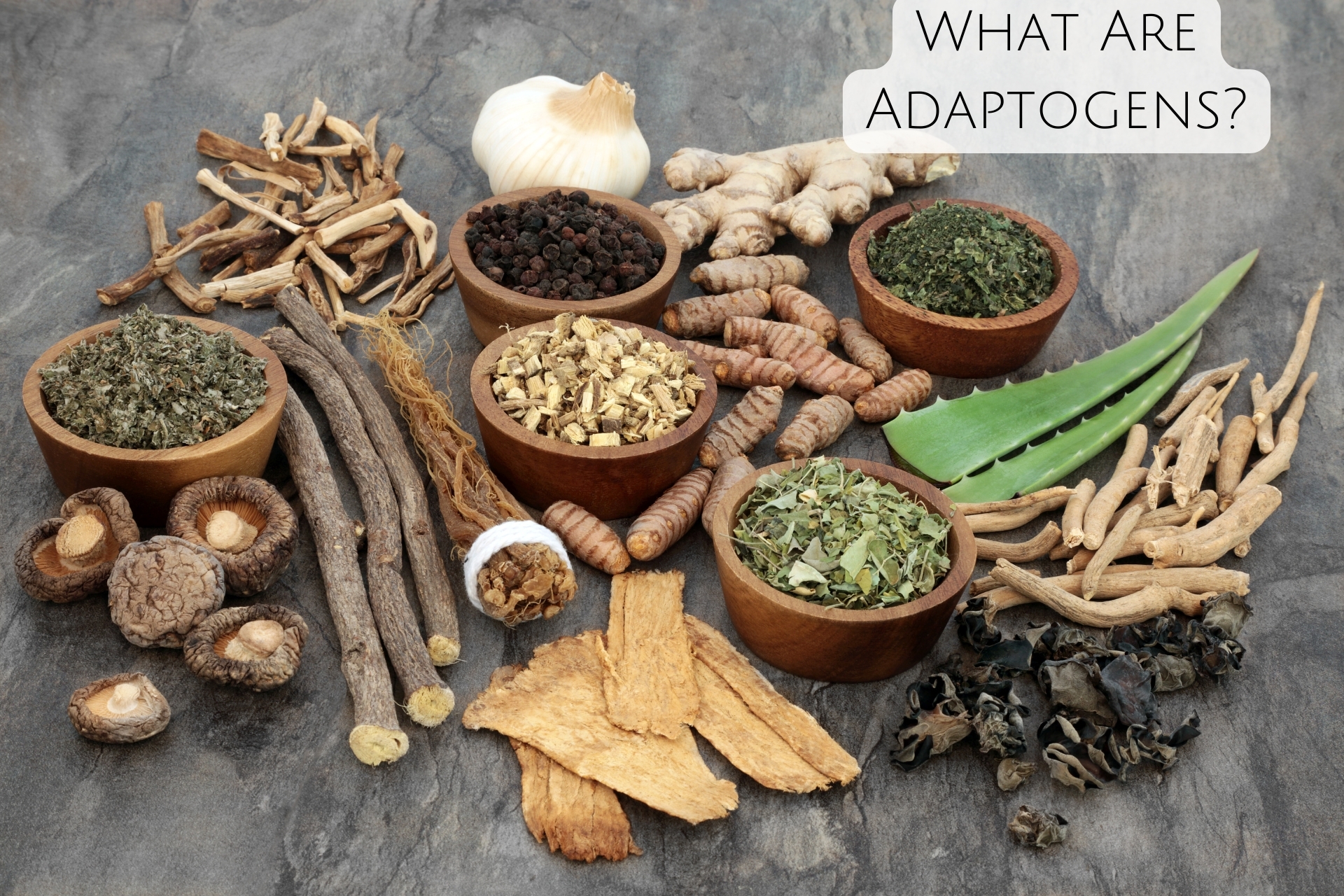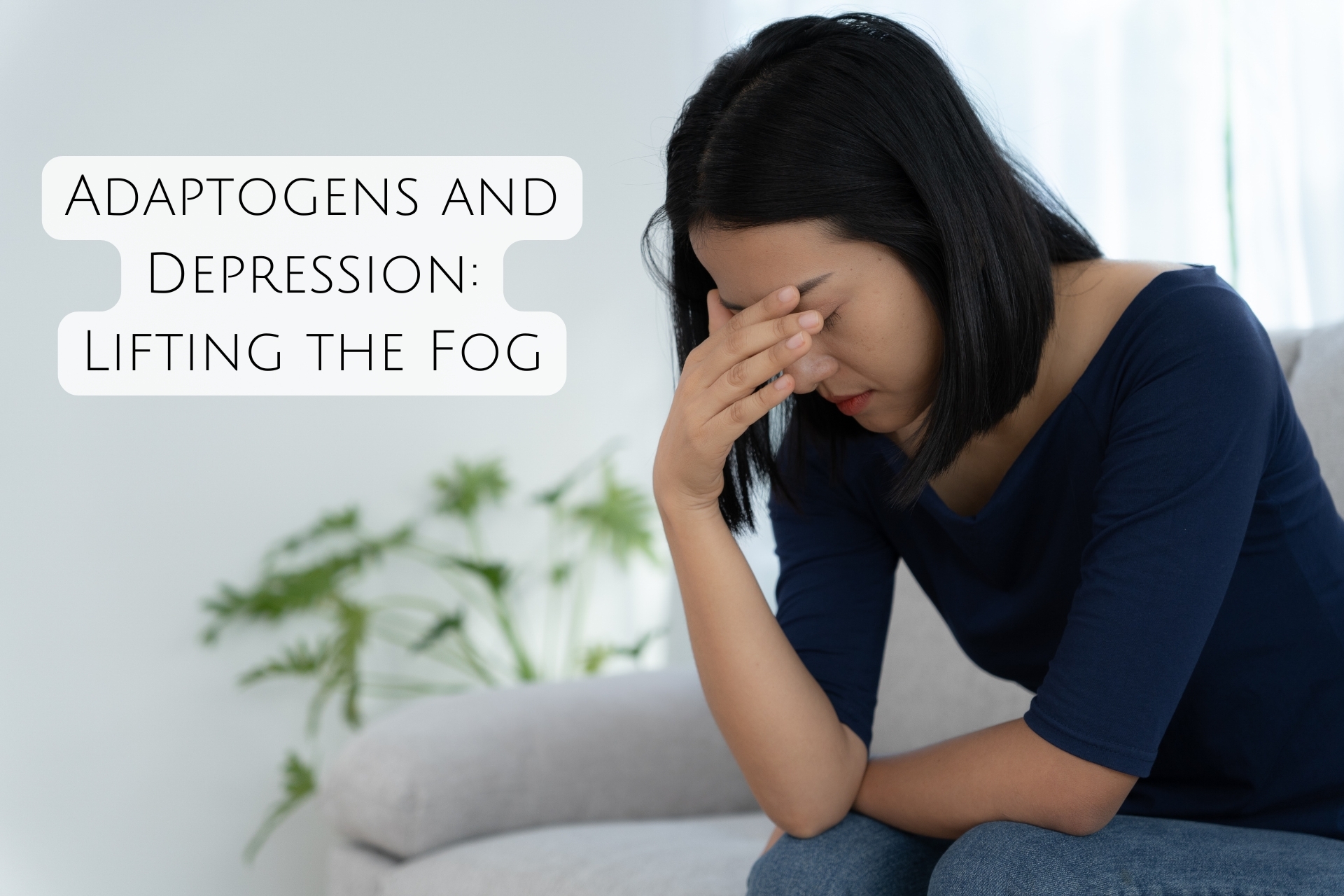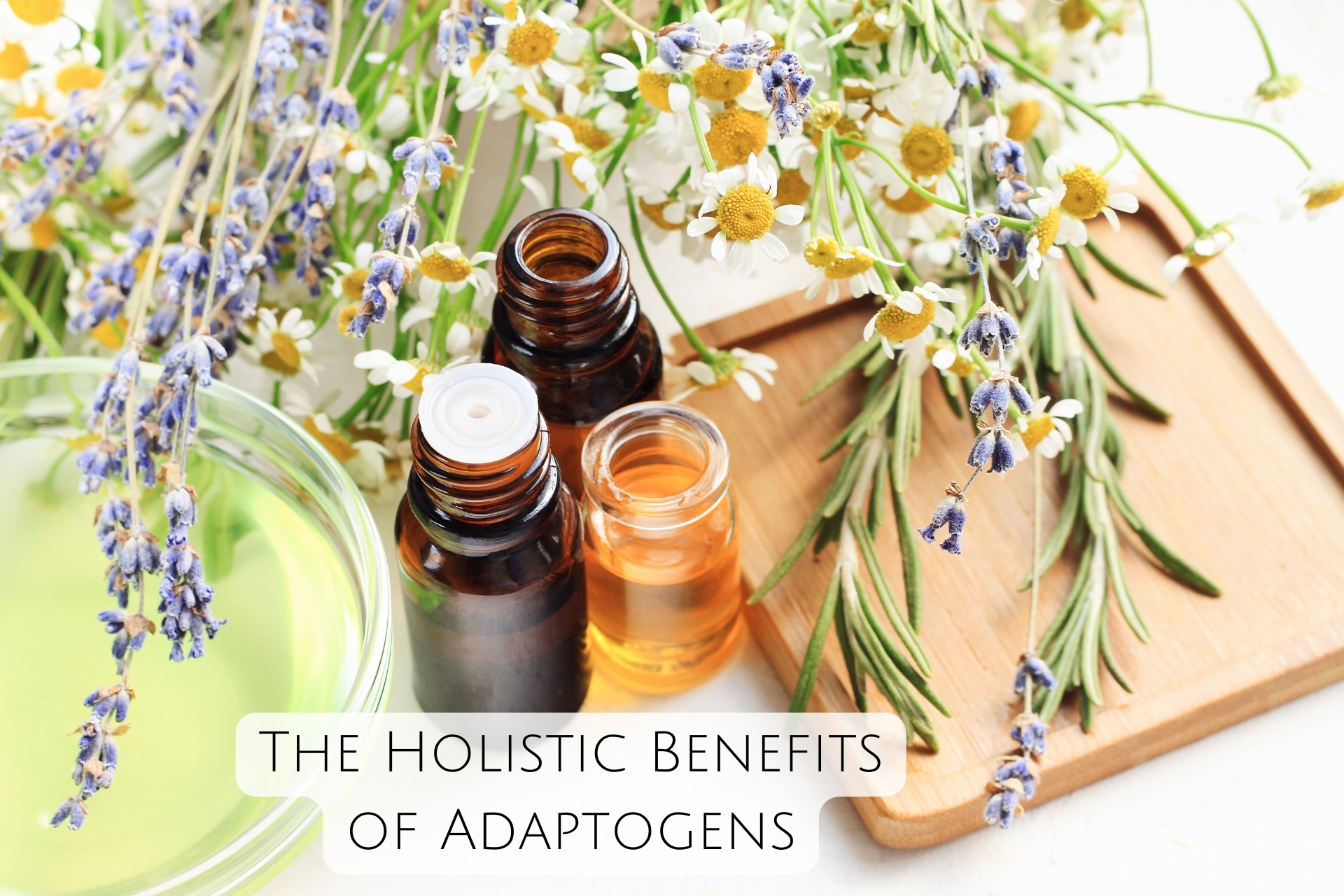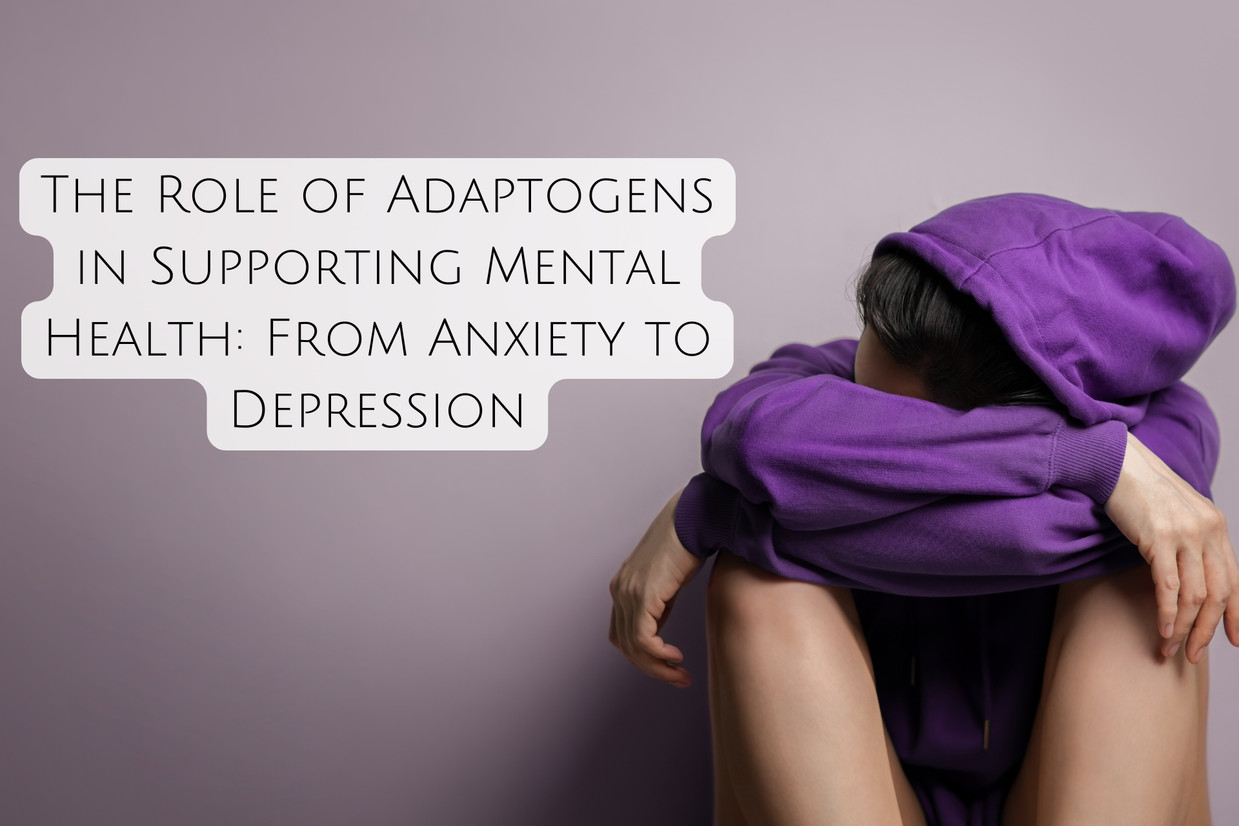The Role of Adaptogens in Supporting Mental Health: From Anxiety to Depression
In today’s rapidly evolving world, challenges like anxiety, depression, and stress have become more widespread than ever. Traditional treatments, including therapy and medication, are essential, but more people are turning to natural solutions that can help support mental resilience—one of the most promising being adaptogens.
Adaptogens are natural substances, often derived from plants and herbs, that are believed to help the body adapt to stress and promote balance. They are known for their ability to support the body’s systems, especially the nervous, immune, and hormonal systems, which are all implicated in mental health. This blog explores the role of adaptogens in managing mental health, particularly anxiety and depression, and how these natural compounds can support overall well-being.
What Are Adaptogens?
Adaptogens are a class of herbs, roots, and fungi that have been used for centuries in traditional medicine, particularly in Eastern cultures. The term “adaptogen” refers to any substance that helps the body adapt to stress, restore balance, and maintain homeostasis. Adaptogens are non-toxic and work by modulating the body’s stress response, influencing key hormones like cortisol, and supporting the nervous system.
Some of the most well-known adaptogens include:
- Ashwagandha: Known for its calming effects, ashwagandha is often used to reduce stress and anxiety.
- Rhodiola Rosea: This herb is used to boost energy levels and combat fatigue, making it useful for those dealing with depression.
- Holy Basil (Tulsi): A powerful anti-inflammatory, holy basil can help reduce stress and anxiety while promoting emotional well-being.
- Ginseng: Often used to enhance mental clarity and energy, ginseng also supports the body’s ability to manage stress.
- Mushrooms (Reishi, Lion’s Mane): These fungi are known for their neuroprotective properties and ability to enhance cognitive function and emotional balance.
Adaptogens are believed to work by influencing the hypothalamic-pituitary-adrenal (HPA) axis, which governs the body’s stress response. By balancing cortisol (the “stress hormone”) and other neurotransmitters, adaptogens can support the body’s ability to handle both physical and mental stress.
Adaptogens and Anxiety: Calming the Mind:
Anxiety is one of the most common mental health conditions, with millions of people experiencing chronic worry, nervousness, and a general sense of unease. The traditional treatment for anxiety often involves a combination of therapy, lifestyle changes, and medication. However, adaptogens offer a complementary approach to anxiety management, helping the body cope with stress more effectively and providing emotional support.
How Adaptogens Help with Anxiety:
- Regulating Cortisol Levels: Chronic anxiety often leads to an overproduction of cortisol, which can make a person feel on edge and exacerbate feelings of nervousness. Adaptogens like ashwagandha and Rhodiola Rosea help regulate cortisol production, preventing it from reaching excessively high levels. By balancing cortisol, these herbs help create a calmer state of mind.
- Supporting the Nervous System: Adaptogens also support the nervous system by enhancing the body’s ability to handle stress. For example, holy basil has been shown to have neuroprotective and anti-anxiety effects, allowing individuals to cope with stress without feeling overwhelmed.
- Promoting Relaxation: Some adaptogens, such as ashwagandha, have calming properties that help to reduce anxiety symptoms. Regular use of these herbs can help lower feelings of tension and agitation, making it easier to relax and focus.
- Balancing Neurotransmitters: Adaptogens like Rhodiola Rosea can influence serotonin and dopamine levels, which play a key role in mood regulation. By optimizing neurotransmitter balance, adaptogens can help alleviate anxiety and improve emotional stability.
Key Adaptogens for Anxiety:
- Ashwagandha: Known for its calming and stress-reducing properties, ashwagandha has been shown to lower cortisol levels and help the body adapt to stress.
- Rhodiola Rosea: Rhodiola helps to increase resistance to stress, reduce anxiety, and improve mental clarity.
- Holy Basil: With its anti-inflammatory and anti-stress properties, holy basil helps combat anxiety and emotional distress.
Adaptogens and Depression: Lifting the Fog:
Depression is a complex mental health condition that affects millions of people worldwide. Depression can be caused by a combination of genetic, environmental, and psychological factors, and it often requires a multi-faceted treatment approach.
Adaptogens have shown promise in alleviating symptoms of depression by influencing the brain’s chemical processes, helping to restore balance in neurotransmitters, and promoting overall emotional health.
How Adaptogens Help with Depression:
- Improving Serotonin and Dopamine Levels: Neurotransmitters like serotonin and dopamine are crucial in regulating mood, and an imbalance in these chemicals is often linked to depression. Adaptogens such as Rhodiola Rosea and ginseng have been shown to help regulate these neurotransmitters, promoting a more positive mood and lifting depressive feelings.
- Reducing Fatigue: One of the hallmark symptoms of depression is fatigue, both physical and mental. Adaptogens like Rhodiola Rosea can combat fatigue by enhancing mitochondrial function and increasing energy levels. This can help individuals with depression regain motivation and energy for daily activities.
- Restoring Hormonal Balance: Depression is often associated with an imbalance in cortisol and other stress-related hormones. Adaptogens such as ashwagandha help regulate cortisol, allowing individuals to experience less of the hormonal fluctuations that contribute to feelings of depression.
- Improving Cognitive Function: Depression can impair cognitive function, including memory, focus, and clarity. Adaptogens like Lion’s Mane mushroom and ginseng are known to promote neurogenesis and cognitive clarity, which can help reduce the mental fog that often accompanies depression.
Key Adaptogens for Depression:
- Rhodiola Rosea: Often referred to as an “anti-fatigue” herb, Rhodiola is known for its mood-lifting and energy-boosting properties, making it effective in the treatment of depression.
- Ashwagandha: Beyond its anxiety-reducing qualities, ashwagandha is also beneficial for individuals dealing with depression, as it can help restore balance in the nervous system and reduce the symptoms of low mood.
- Lion’s Mane Mushroom: Known for its ability to improve cognitive function, Lion’s Mane supports brain health and may be helpful in managing depression, especially when mental clarity is impaired.
- Ginseng: Used to combat fatigue and improve mood, ginseng has antidepressant-like effects that make it a helpful herb for those struggling with low energy and depressive symptoms.
The Holistic Benefits of Adaptogens:
In addition to their role in supporting mental health, adaptogens offer a wide range of other health benefits, contributing to overall well-being:
- Immune System Support: Adaptogens help modulate the immune system, ensuring that the body can fight off infections and recover from illness more efficiently.
- Boosting Energy and Stamina: Adaptogens like ginseng and Rhodiola Rosea enhance physical endurance, making them ideal for combating fatigue and promoting sustained energy throughout the day.
- Anti-Inflammatory Effects: Many adaptogens have powerful anti-inflammatory properties, which can help reduce systemic inflammation linked to chronic stress and mental health disorders.
- Promoting Better Sleep: Chronic stress and anxiety can interfere with sleep patterns. Adaptogens like Ashwagandha and Holy Basil help improve sleep quality by promoting relaxation and reducing nighttime anxiety.
How to Incorporate Adaptogens Into Your Routine:
Integrating adaptogens into your daily routine is easy, and there are many different ways to do so. Adaptogens are available in various forms, including capsules, powders, teas, and tinctures. Here are some tips for incorporating them into your wellness routine:
- Start Slowly: Begin with small doses of adaptogens, especially if you are new to them. Gradually increase the dosage based on how your body responds.
- Consult a Healthcare Provider: Before starting any new supplement regimen, especially if you have existing health conditions or are taking medication, it’s a good idea to consult with a healthcare provider to ensure that adaptogens are safe and effective for you.
- Combine Adaptogens: Many adaptogens work synergistically when combined. For example, ashwagandha and Rhodiola Rosea are often paired together to create a balanced formula for managing both stress and fatigue.
- Experiment with Different Forms: Adaptogens come in various forms—try adding a spoonful of Rhodiola Rosea powder to your morning smoothie, sipping on a cup of Holy Basil tea, or taking a daily supplement of Ashwagandha to find what works best for you.
Conclusion: Harnessing the Power of Nature for Mental Health:
As we continue to learn more about the connections between mental health, stress, and the body, adaptogens have emerged as a promising natural solution for supporting emotional well-being. These powerful herbs and plants help regulate the body’s stress response, improve mood, and support overall mental resilience, making them a valuable addition to the treatment of anxiety, depression, and other mental health conditions.
By incorporating adaptogens into your wellness routine, you can help create a more balanced, calm, and energized state of mind—empowering you to navigate life’s challenges with greater ease and emotional strength. Whether used alone or as a complement to traditional therapies, adaptogens offer a holistic and natural approach to mental health that works in harmony with your body’s innate abilities.
Recent Posts
-
The Science Behind Mycotoxin Detox: What Does Research Say?
With increasing awareness of the impact of mycotoxins on health, the concept of mycotoxin detoxifica
-
The Science Behind Plant-Based Meat: How Technology is Changing Our Food
In recent years, the food industry has witnessed a seismic shift with the rise of plant-based meat a
-
The Synergy of NAC, DIM, and Myo-Inositol for Overall Wellness
In the world of nutritional supplements and holistic health, certain ingredients are emerging as pow





